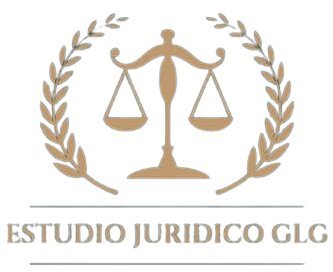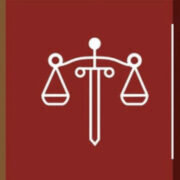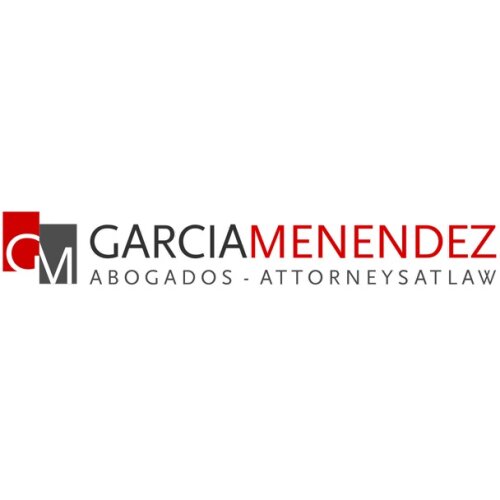Best Domestic Violence Lawyers in Argentina
Share your needs with us, get contacted by law firms.
Free. Takes 2 min.
Free Guide to Hiring a Family Lawyer
Or refine your search by selecting a city:
List of the best lawyers in Argentina
About Domestic Violence Law in Argentina
Domestic violence is a serious and pervasive issue in Argentina, as it is in many parts of the world. It encompasses various forms of abuse, including physical, emotional, sexual, and economic abuse, within the context of familial or intimate relationships. In response to this grave concern, Argentina has established comprehensive legal frameworks aimed at protecting victims and preventing further violence. The country has adopted international standards and treaties, such as the Belém do Pará Convention, and has implemented comprehensive laws at the national level, such as the Law 26,485 on Comprehensive Protection to Prevent, Punish, and Eradicate Violence against Women.
Why You May Need a Lawyer
Individuals facing domestic violence may find themselves in complex legal situations where the assistance of a lawyer becomes crucial. Some common scenarios include:
- Seeking a restraining order or protection order against the abuser.
- Filing for divorce or separation due to an abusive relationship.
- Pursuing custody of children when domestic violence is a factor.
- Needing representation in criminal proceedings if the abuser is prosecuted.
- Understanding and navigating the legal system to ensure rights are upheld and protection is provided.
Local Laws Overview
Argentina's legal system provides several key measures and protections for victims of domestic violence:
- Law 26,485: This law focuses on comprehensive protection policies for women in situations of violence. It defines various forms of violence and establishes rights and protective measures for victims.
- Protection Orders: Victims can seek protective measures in court to restrict the abuser's access and interaction with them.
- Criminal Prosecution: Domestic violence can lead to criminal charges for the perpetrator, with penalties and repercussions defined under the Penal Code.
- Family Law Measures: Family courts can address custody, visitation, and support issues when domestic violence impacts family dynamics.
Frequently Asked Questions
What constitutes domestic violence in Argentina?
Domestic violence in Argentina can include physical, psychological, sexual, and economic abuse within family or intimate partner settings, as defined by Law 26,485.
What legal protections are available to domestic violence victims?
Victims can seek protection orders, file criminal charges against the abuser, and secure family law protections such as custody and visitation modifications.
How do I obtain a protection order?
A protection order can be requested through the local court system, often with the assistance of legal counsel or a victim support organization.
Can domestic violence impact custody decisions?
Yes, family courts consider the presence of domestic violence when making custody and visitation decisions to ensure the safety of children.
What are the penalties for domestic violence perpetrators under Argentine law?
Penalties can range from restraining orders and fines to imprisonment, depending on the severity and nature of the abuse.
Can men be victims of domestic violence in Argentina?
Yes, while the majority of cases involve female victims, men can also be victims of domestic violence and are entitled to legal protection.
Are there shelters or safe houses available for victims?
Yes, there are various shelters and safe houses across Argentina where victims can find temporary refuge and support.
Can I report domestic violence anonymously?
Anonymous reports can be made; however, providing personal information might be necessary to ensure the effectiveness of protective measures and legal proceedings.
Where can I find support or counseling services?
Numerous NGOs, government bodies, and community organizations provide support and counseling services to domestic violence victims.
What should I do if I feel threatened by my partner or family member?
It's crucial to prioritize personal safety first. Contact the police, seek legal protection, and reach out to support organizations for help and guidance.
Additional Resources
For individuals seeking support and information on domestic violence in Argentina, the following resources are invaluable:
- Ministry of Justice and Human Rights: Offers legal assistance and support to victims.
- National Women's Institute (INAM): Works on policies and programs to prevent violence against women.
- Argentine Network of Shelters: Provides safe accommodations and support for victims of domestic violence.
- Local NGOs and Support Groups: Numerous local organizations offer counseling, legal aid, and advocacy services.
Next Steps
If you or someone you know is experiencing domestic violence in Argentina, taking immediate legal action is essential. Here are some steps to consider:
- Document any incidents of abuse, including dates, times, and details of the occurrences.
- Contact local authorities to report the violence and seek immediate protection.
- Consult with a lawyer who specializes in domestic violence cases to understand your legal rights and options.
- Reach out to domestic violence hotlines and support organizations for advice and resources.
- Consider seeking a protection order and explore safe housing options if necessary.
Remember, no one should face domestic violence alone, and legal protections are available to ensure the safety and well-being of victims in Argentina.
Lawzana helps you find the best lawyers and law firms in Argentina through a curated and pre-screened list of qualified legal professionals. Our platform offers rankings and detailed profiles of attorneys and law firms, allowing you to compare based on practice areas, including Domestic Violence, experience, and client feedback.
Each profile includes a description of the firm's areas of practice, client reviews, team members and partners, year of establishment, spoken languages, office locations, contact information, social media presence, and any published articles or resources. Most firms on our platform speak English and are experienced in both local and international legal matters.
Get a quote from top-rated law firms in Argentina — quickly, securely, and without unnecessary hassle.
Disclaimer:
The information provided on this page is for general informational purposes only and does not constitute legal advice. While we strive to ensure the accuracy and relevance of the content, legal information may change over time, and interpretations of the law can vary. You should always consult with a qualified legal professional for advice specific to your situation.
We disclaim all liability for actions taken or not taken based on the content of this page. If you believe any information is incorrect or outdated, please contact us, and we will review and update it where appropriate.
Browse domestic violence law firms by city in Argentina
Refine your search by selecting a city.
















